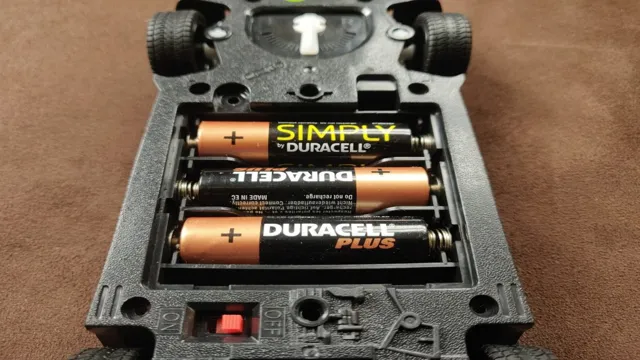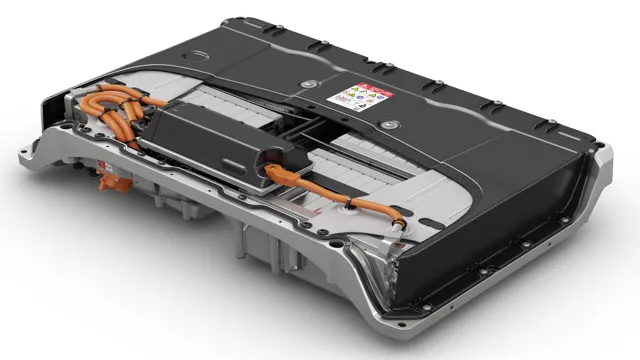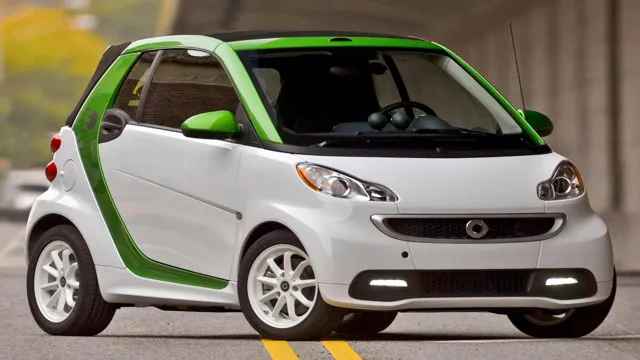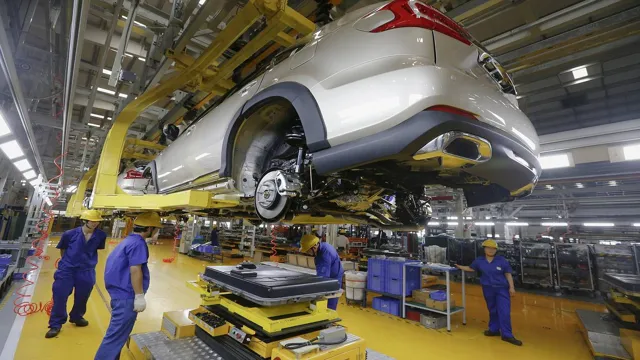Revitalize Your Ride: The Ultimate Guide to Electric Car Battery Replacement
Electric cars are becoming more popular day by day and rightfully so. They offer a clean and sustainable alternative to gas-powered vehicles. However, one major concern for potential electric car buyers is the battery replacement process.
While these batteries are typically designed to last for many years, there may come a time when they need to be replaced. This can be quite daunting for car owners who are not familiar with the process. In this blog, we will explore the ins and outs of electric car battery replacement and answer some commonly asked questions, so you can be fully informed before making the switch to an electric vehicle.
Reasons to Replace Your Electric Car Battery
Electric car batteries are designed to last for many years, but eventually, they will deteriorate and need to be replaced. There are several reasons why you may need to replace your electric car battery. Firstly, if your battery is no longer functioning correctly, you may notice a decrease in performance or driving range.
In some cases, your car may not even start. Secondly, if your battery is damaged or swollen, it is important to replace it immediately as this can cause safety issues. Finally, as your battery ages, it may become less effective at storing and delivering energy.
This means that you may need to replace your battery to ensure that you continue to get the most mileage out of your electric car. Overall, if you notice any issues with your electric car battery, it is best to have it checked by a professional and consider a replacement if necessary.
Diminished Performance
If you own an electric car, it’s essential to keep an eye on its battery performance. Over time, the battery’s health can diminish, affecting your vehicle’s efficiency and range. There are various reasons why an electric car battery may start to lose its edge.
These include extreme temperatures, excessive charging, low charging levels, and prolonged storage periods. When your electric vehicle battery starts to underperform, it’s time to consider a replacement. A new and improved battery will provide better range, faster charging, and improved overall performance.
Think of it like replacing your old phone battery with a new one; it will bring new life to your vehicle, and you’ll feel like you’re driving a brand new car. Plus, with advancements in battery technology, newer models can offer even better performance, making a battery replacement an excellent investment for your electric vehicle. So, if you’re noticing a drop in performance, don’t wait any longer; it’s time to consider switching to a new battery.

Reduced Range
If you own an electric car, you might notice its range starts to decrease over time. This is a sign that your vehicle’s battery might require replacement. A reduced range is one of the most common reasons to replace your electric car battery.
Over time, lithium-ion batteries used in electric vehicles lose their capacity to store energy, leading to a shorter range per charge. This can be caused by several factors like high temperatures, frequent deep discharge, and overcharging. If you experience a significant decrease in your electric car’s driving range, it may be time to replace your battery to ensure your vehicle’s optimal performance.
Getting a new battery will help you fully enjoy the benefits of electric cars, including low operating costs, smoother rides, and a more sustainable future.
Aging Battery
As electric cars grow in popularity, it’s important to consider the lifespan of your battery. Over time, your car’s battery will inevitably begin to age and lose efficiency, which can lead to a variety of issues if not addressed. One of the most common signs of an aging battery is decreased range, as the battery may not hold as much charge as it once did.
You may also notice slower acceleration and overall decreased performance from your vehicle. In some cases, an aging battery may even pose a safety hazard, as it could fail while driving. For these reasons, it’s important to pay attention to the health of your car’s battery and consider replacing it when necessary.
By doing so, you can ensure that your electric vehicle continues to run efficiently and avoid any potential safety concerns on the road.
Types of Electric Car Batteries
If you’re considering an electric car, it’s important to understand what type of battery is powering it. Electric car batteries fall into two main categories: lithium-ion and nickel-metal hydride. Lithium-ion batteries are the most commonly used and offer higher energy density, providing longer ranges and faster charging times.
Nickel-metal hydride batteries are less common and have lower energy density, meaning they provide shorter ranges and slower charging times. However, they are less expensive than lithium-ion batteries. When it comes to electric car battery replacement, it’s important to consider the type of battery in your car.
While lithium-ion batteries may offer better performance, they also come with a higher price tag. Nickel-metal hydride batteries may offer a more affordable option for replacement, but may not provide the same level of performance as a lithium-ion battery. Ultimately, the choice will depend on your budget and driving needs.
Lithium-Ion Battery
As electric cars gain popularity, the types of electric car batteries available to us are becoming increasingly relevant. One of the most common types of batteries used in electric cars today is the Lithium-Ion battery. These batteries are popular because they are lightweight and provide a lot of power.
They are made up of a cathode, an anode, and an electrolyte. The cathode and the anode are made of materials that allow for the movement of ions between them, while the electrolyte provides a medium for the movement of those ions. The Lithium-Ion batteries are known for their long lifespan, high energy density, and their ability to recharge quickly.
Moreover, these batteries are easier to maintain and dispose of compared to other types of batteries used in electric vehicles. So what makes these batteries so special? Well, think of them like a water bottle. When you are thirsty, you take a sip of water from the bottle, and the water moves from the top of the bottle to the bottom.
Similarly, in a Lithium-Ion battery, the ions move from the cathode to the anode. The movement of these ions creates an electrical charge that can be used to power your electric vehicle. Overall, the Lithium-Ion battery is an excellent choice for electric vehicles due to their long life, high power output, and low maintenance requirements.
Nickel-Metal Hydride Battery
Electric car batteries come in a variety of types, each with its own set of advantages and disadvantages. One such type is the nickel-metal hydride (NiMH) battery. NiMH batteries are an improvement over the nickel-cadmium (NiCd) battery and offer a higher energy density.
This means that they can store more energy and deliver more power than NiCd batteries of the same size. They are also less toxic and less prone to memory effects than NiCd batteries. Memory effect refers to the tendency of a battery to remember the capacity it was last charged to, which can reduce the battery’s overall capacity over time.
NiMH batteries, on the other hand, are more resistant to memory effects and can be charged more frequently without significant loss of capacity. NiMH batteries are used in many hybrid cars and some all-electric cars. However, they are not as efficient as lithium-ion batteries and are bulkier and heavier, reducing the car’s overall efficiency and performance.
Despite this, NiMH batteries remain a popular choice due to their lower cost and lower environmental impact compared to other types of batteries.
Lead-Acid Battery
Lead-Acid Battery When it comes to electric cars, the type of battery used is crucial for their performance and longevity. Lead-acid batteries were the first type of rechargeable battery invented, and they were widely used for many years. They are still commonly used in some electric cars, particularly in low-speed vehicles.
Lead-acid batteries are known for their low cost and durability, and they can provide high levels of power. However, they also have some drawbacks. For example, they are relatively heavy and take up a lot of space, which can limit the range of an electric car.
Additionally, they require regular maintenance, such as topping up with distilled water, and can be hazardous if not handled properly. Despite these downsides, lead-acid batteries remain a viable option for some electric car manufacturers, particularly those who prioritize affordability over other factors.
How to Replace Your Electric Car Battery
Electric car battery replacement can seem daunting at first, but with the right tools and guidance, it can be a straightforward process. The first step is to ensure that the battery needs replacement and not just a repair. The age of the battery and the number of charging cycles it has gone through can be good indicators.
Next, check the make and model of your electric car as different cars require different battery replacements. After securing the correct battery replacement, consult your car’s manual and follow the instructions carefully. It’s important to note that electric car batteries can weigh hundreds of pounds, so it may be necessary to have additional help.
When removing the old battery, take care to disconnect it safely and dispose of it properly. Lastly, install the new battery and reconnect it according to the instructions provided. With a new battery, your electric car can run like brand new.
Choose the Right Replacement Battery
Replacing the battery of an electric car can be a daunting task, but with the right replacement battery, it can be a breeze. When choosing a replacement battery, it is important to consider factors such as the make and model of your electric car, the type of battery technology it employs, and your charging habits. Lithium-ion batteries are becoming the most common type of battery technology used in electric cars due to their high energy density and longer lifespan.
However, if you have an older electric car model, it may still use a Nickel-Metal Hydride battery. Make sure to purchase a replacement battery that is compatible with your electric car’s battery technology. Additionally, charging habits can affect the lifespan of your battery.
If you frequently fast charge your electric car battery, you may want to invest in a replacement battery with a higher power threshold. By considering these factors, you can ensure that you choose the right replacement battery for your electric car and continue to enjoy the benefits of sustainable and environmentally-friendly transportation.
Locate and Remove the Old Battery
When it comes time to replace your electric car battery, the first step is to locate and remove the old battery. This may seem daunting, but with the help of a few tools and some basic knowledge, it can be done safely and efficiently. Begin by disconnecting the negative cable from the battery and then the positive one.
Use a socket wrench or adjustable wrench to loosen and remove any clamps or brackets holding the battery in place. Gently lift the battery out of its compartment and set it aside. It’s important to take note of any wires or connectors attached to the old battery and their placement, so you can correctly connect the new battery later.
Once the old battery is removed, you can move on to installing the new one and getting your electric car back up and running. Remember to dispose of your old battery responsibly by taking it to a recycling center or battery retailer. With these steps, you can replace your electric car battery with ease and get back on the road in no time.
Install the New Battery and Test
Replacing an electric car battery may seem daunting at first, but with the right tools and know-how, it’s a surprisingly simple process. Once the old battery has been removed and disposed of properly, it’s time to install the new battery. To start, carefully lower the new battery into place, making sure it’s properly aligned and secured.
If necessary, use the battery hold-downs to keep it in place. Next, reconnect the positive and negative terminals, being careful not to over-tighten them. Once the connections are secure, turn the key to test the battery.
If everything is working properly, your car should start up without any issues. And voila – your electric car is up and running again, thanks to your DIY battery replacement skills! Remember, it’s important to dispose of your old battery in an environmentally friendly manner – many automotive stores or recycling centers will accept them for proper disposal. With a little effort, anyone can replace their electric car battery and save money on expensive dealer installations.
Cost of Electric Car Battery Replacement
One of the biggest concerns people have when considering purchasing an electric car is the cost of electric car battery replacement. These batteries are a crucial component of the vehicle and will need to be replaced at some point, but the good news is that advancements in technology have led to lower costs over time. The price largely depends on the make and model of the car, but it’s estimated that the average cost for a new battery ranges between $3,000 and $5,000.
However, it’s important to note that some car manufacturers offer warranties and subsidies for battery replacement as an incentive for buying their vehicles. Additionally, advances in battery technology are making them more durable and longer-lasting, meaning that replacement may not be necessary for many years. Overall, while the cost of electric car battery replacement may seem daunting, it’s a one-time investment that can be mitigated through manufacturer incentives and technological advancements.
Factors that Affect the Cost
When it comes to purchasing an electric vehicle, the cost of battery replacement is an important factor to consider. Several factors can affect the cost, such as the size and type of battery, the manufacturer, and the age of the vehicle. Typically, the larger the battery, the more expensive it is to replace.
Additionally, the manufacturer of the battery can also impact the cost. For example, if the battery is from a luxury brand, it may be more expensive to replace. Lastly, the age of the vehicle can also be a factor.
As electric vehicle technology continues to improve, older models may have outdated battery technology that is more challenging and expensive to replace. Overall, it’s important to consider the cost of battery replacement when purchasing an electric vehicle, as it can affect the long-term cost of ownership.
Average Cost of Replacement
When it comes to electric cars, one of the biggest concerns is the cost of battery replacement. On average, the cost of replacing an electric car battery can range from $3,000 to $7,000. However, the price can vary depending on the make and model of the car, as well as the battery’s size and capacity.
It’s important to note that the average lifespan of an electric car battery is around 8-10 years, but with proper care and maintenance, it can last longer. While the thought of a pricey replacement may seem daunting, it’s important to keep in mind the long-term cost savings of an electric car, such as lower fuel and maintenance costs. In the end, investing in an electric car can result in significant long-term savings, even with the potential cost of a battery replacement.
Conclusion
The future of transportation lies in the power of electric cars, but just like any other vehicle, the batteries eventually need to be replaced. Think of it like trading in your old phone for the latest model – you’re upgrading to newer and better technology. As more and more people adopt electric vehicles, the demand for efficient and affordable battery replacement options will continue to grow.
So, like a wise driver, keep an eye on your battery’s performance, plan for replacement, and get ready for the smoothest ride yet.”
FAQs
How often do electric car batteries need to be replaced?
The lifespan of an electric car battery varies, but most manufacturers estimate they will last between 8 to 10 years. However, factors such as usage patterns, weather conditions, and charging habits can affect the battery’s lifespan.
Is it expensive to replace an electric car battery?
Yes, replacing an electric car battery can be costly. The cost can vary depending on the make and model of the vehicle, but it can range from $5,000 to $15,000 or more. However, some manufacturers offer warranties and replacement programs that can help reduce the cost.
Can you replace an electric car battery yourself?
It is not recommended to replace an electric car battery yourself, as it requires specialized knowledge and tools. It is better to take your vehicle to a certified dealership or repair shop that is equipped to handle electric cars.
Can you extend the life of an electric car battery?
Yes, there are several things you can do to extend the life of your electric car battery. These include avoiding rapid charging, minimizing exposure to extreme temperatures, and reducing heavy loads on the battery. Additionally, regular maintenance and software updates can help optimize the battery’s performance.



